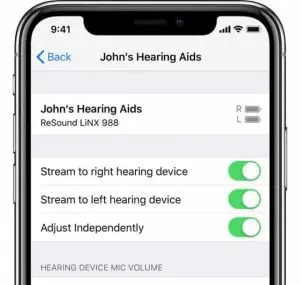Transparency in Pricing
To bundle or not to bundle: that is the question.
Now that I have poor William Shakespeare (get it “to be or not to be…”) rolling in his grave, what on earth am I talking about now? We have been talking about transparency in business; in understanding the cost of the procedure before you have it, and in knowing whether the business is telling you about potential conflicts of interest. Now I want to talk a bit more about pricing in a bundle.
What does it mean pricing in a bundle?
What happens when you purchase a product that requires maintenance and follow-up? Obviously, you pay for the product, but what about the service that follows? How do you pay for that? Is it covered in the price of the product? Do you pay an extra fee? If you pay extra, what exactly are you paying for?
When you buy a car, the price is generally the price.
Some negotiation can occur, but generally, the price is what you pay and then you add taxes, and title costs. Perhaps the dealer offers a service plan. You pay an extra fee and for a certain period of time, certain maintenance costs are reduced or free. I purchased such a plan for my car last summer. Over the past six months, my car has had to go into the shop three times—for the same problem! Uff. So annoying. The first time, I had to pay to replace the brain of the computer system for the car. When that stopped working, I did not have to pay a thing. This last time, something went wrong with the radio as well. I did not have to pay, because it was under the service plan. When I bought the car and decided to purchase the service plan, I got a 20-page list of what was and what was not covered and for how long. I had the information I needed to make a decision.
Cars need parts and service, oil changes and more:
Usually when you have a broken car part, it is very clear, they charge you for part and they charge you for service. We like that because then we know the transparency for costs. You pay for the oil and you pay for the person that changes the oil. It is fair and clear.
What happens when you go to another type of service provider but now in Health Care?
Medicine doctors and Physician assistants charge for their time and the degree of complication and the doctor codes the diagnosis and the level of care given at that appointment. The insurance company pays for that service. It has been like this for a long time that doctors don’t bill for the medical treatment (pills) with the service. That is against the law. The doctor doesn’t get a commission on the medicine prescribed. Some doctors do get paid extra if the patient stays within a good health range of test score but as far as we are aware they don’t get paid on lab work done or pills prescribed.
Dentist appointments are a little more convoluted in transparency:
Let’s say you go to the dentist, he or she finds gum disease and you need to go in four times a year. Some will charge you and/or bill insurance at every visit. What if they offer a flat rate? Pay us $2000 for the year for this treatment. What are you paying for? Do they list out what happens at each of these appointments? What if more needs to be done? Are you covered or is that an additional charge?
Or you need a bridge or a tooth from the dentist. We hear from our patients that they pay 2000 to 5000 or more. Does the imitation tooth they had made cost that much? We know it does not because we have a patient who owns a tooth lab and he told us it is $20 for the tooth. What the cost is the work the dentist does to put that tooth in one’s mouth. Our patients are confused as they think it is the tooth or the bridge that is expensive, not the work being done. Not very transparent is it?
Orthodontics, as well as Audiology, is the worst in bundle cost, in Kim, our Audiologist’s opinion.
Both her kids needed braces and it was 6000 for each to get straight teeth. The cost of goods isn’t that expensive, or are they? Your child has to go in once/week for a 15 to 20-minute appointment for the most part. Or now and again a little longer to fix something. Does that time spend out to 150/appointment or 300/20 minutes or what? Is the orthodontist making more money than the fanciest of lawyers? Are the color pieces on the braces more than the plain silver ones? There is no transparency for what the orthodontist charges. And $6000 is really unaffordable for most people, but it is the cost for your kids to have straight teeth. Now things may have changed in orthodontics since Kim’s kids got braces 10 years ago. Luckily for those of us with kids, the orthodontist offers financing. We know they are wealthy, they don’t work Fridays and we know our orthodontist retired young. Or is that just our assumption? We don’t really know as there is no transparency.
Buying a Hearing aid is similar to buying Braces!
For a long time, we hearing clinics, audiologists, and hearing health care providers, did not know to unbundle costs, and even today many still do not unbundle the cost of service from the cost of the hearing aid. Our customers often believe that the cost of the aids are truly 6000. Or are they? They are not. That is a bundled cost so that service is bundled in with the cost of the aid. We haven’t had our services bundled in our cost since 2012.
Finally to our question at hand, to bundle or not to bundle:
A case could be made for both. The difference is what you as the consumer know upfront. Are you told exactly what the additional fee is going to pay for? If so, then it is up to you to decide if that is the right thing for you. In our clinic, for instance, we do have a bundled fee and we explain what the bundle will provide for verses if you pay as you go along. We have a bundle fee that will give you five years of service with all the services broken down plus what products you get with the fee. It is transparent in a bundled way.
Hence what do you prefer, the choice is yours; Do you prefer to pay a fee knowing that each visit you make for the length of the bundle is paid or would you rather pay as you go?
The problem is that some providers just wrap the service into the cost of the product. There is no itemization, which can really be a problem with insurance. To the insurance company, it looks like the provider is charging more than the insurance company is willing to pay. They will not pay the increased charge, leaving you with a bill. The consumer may or may not go back for care since they have already paid too much out of pocket.
Even worse, the third-party administrators that the consumer buys from (there are many now) are signing up providers and paying them only from a bundled fee.
In this case the provider signs in with a third-party administrator that is selling something. In particular, let us talk about health care and specifically Hearing aids. The consumer buys a hearing aid from the third-party network and the cost is not transparent. The cost is posed as a co-pay. If this is not an insurance company, it is NOT a copay, it is a price for the product/service. The consumer is now told to go to an “in-network” provider. This is a provider that is in-network for the third-party group. The consumer now a patient gets a discounted hearing test from the in-network provider (fair) and is told what product to get based on the third-party network (who owns this network is what the product is dependent on) We don’t think this is kosher because the patient doesn’t know this and not transparent and maybe not ethical. We have more information about these networks but we digress as the point here is the bundle paid to the audiologists for service. The service to the audiologist is based on a bundled fee and not only that bundled fee but based on if the patient keeps the hearing aid. If the patient returns the aid, the provider doesn’t get much money if any at all. What do you think makes the provider do? Well, we understand that the provider knows it is a small fee and so they do not want to see the patient again as they want to make sure the patient keeps the aid and doesn’t take more of their time as they only get a small fee. When the patient comes back after the trial is over, happy or not, they have to now pay a small fee to see that provider. We opt to not be in these networks because we find them not only lacking in transparency but lacking in ethical practices for a health care provider. We take your hearing seriously and don’t believe it is just about one product or another. There is a whole system, a whole body approach to helping you hear better in your situations and perhaps even need some medical attention.
We at Hears Hearing & Hearables want you to be an informed consumer.
We will tell you what the costs are up front; before any orders are placed.
In our clinic in Minnesota, we do offer several bundle packages, but they are not required and are separate from the cost of the hearing aid. Some of our bundled services are more affordable than if you buy each service. It offers you better prices in the long run as long as you know what you are entitled to receive. It is a little contract for you. We share with you what each package costs, the duration of each package is for and what services are covered under each. Our website lists costs as well. We want you to be happy with your purchase as well as with the service. Knowledge, understanding, and comfort make for a happy client. That is our goal. As well as hearing well of course.
We also promise to look for other audiologists around the United States that will align with our strong belief in transparency and ethics. Those audiologists are out there and we must support them and pay for their time and service.
Happy Hearing!
Karen (edited by Kim)





